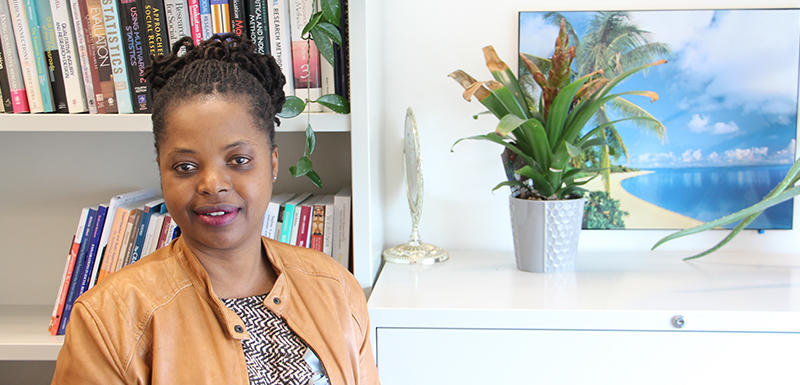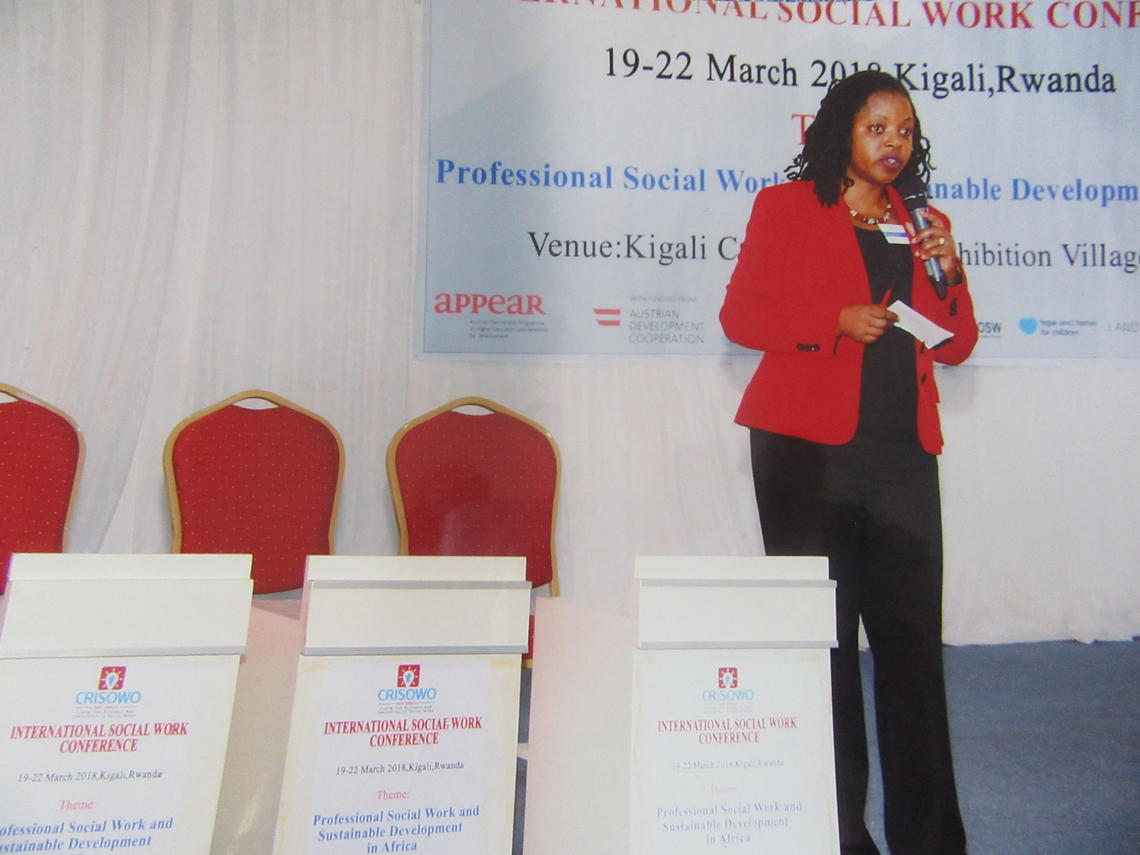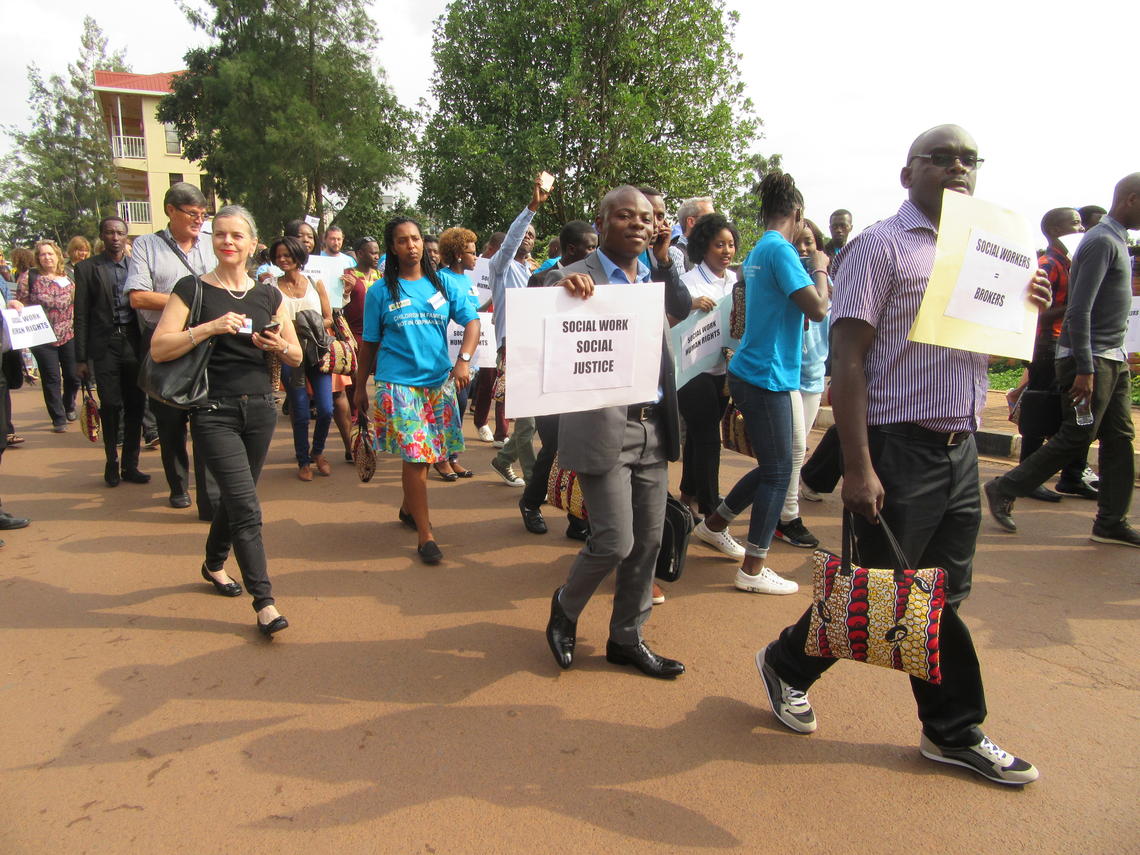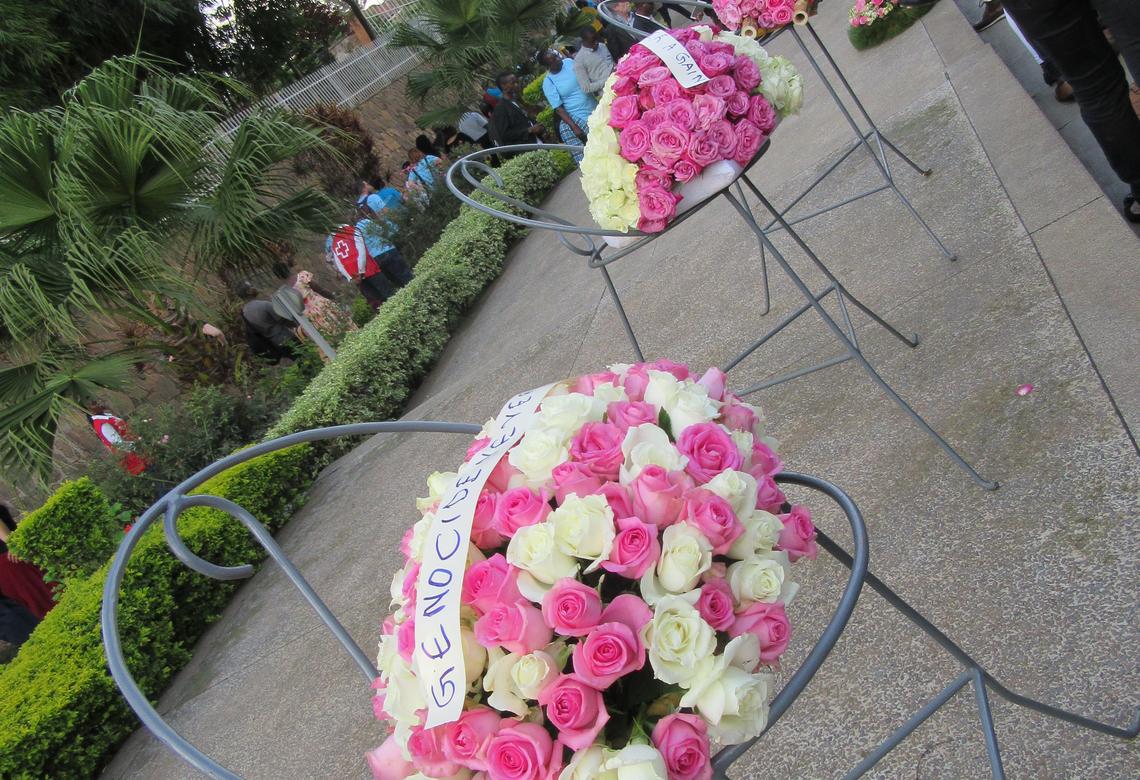April 23, 2018
Genocide survivor Régine King finds reconciliation lessons in the aftermath of mass violence

Professor Régine King believes researchers need to look at trauma with a holistic lens.
How do you get over the unimaginable? How do you get past the unspeakable? For 100 days in Rwanda, from April 7 to the beginning of July, neighbours turned on neighbours as an estimated 800,000 mostly ethnic Tutsi men, women and children were murdered in what is now recognized as the 1994 genocide against the Tutsi. Visitors to the beautiful African country often remark that it is difficult to reconcile the peaceful country they see today with the savage history chronicled at the country’s memorial centre.
Régine Uwibereyeho King survived the unimaginable. She was a university student visiting her family’s farm when it began. She lost two brothers during the massacre, and another brother survived three separate attacks. You could forgive her if she never, ever, forgave the perpetrators of the massacre, but she has.
In fact, King, PhD, MEd, a professor with the Faculty of Social Work, has made her life’s mission to understand the complex trauma created by mass killings and the complex approach to healing and recovery. A process that she has been involved with in Rwanda as a participant, then a facilitator and trainer, and finally a researcher.
“I was skeptical,” admits King. “Actually, I felt that he (Dr. Simon Gasibirege, who introduced the model) was crazy, that he didn't have any idea of what he was talking about. He was not in Rwanda (at the time of the genocide), he doesn't understand. But, after I went into his program as a participant, I would say that I invested. I fell in love with it. I changed to become a facilitator of the same program. What was very fascinating to me as I was going through the program, or facilitating and training others, was I realized there was so much that was helping me personally. So much that was also helping me to understand the complexities of what was going on in my own community.”

Régine King delivers a keynote address at the IFSW Conference in Rwanda in March.
Régine King
A bittersweet moment
King recently returned to Rwanda for a bittersweet moment last March. She was invited to be a keynote speaker at the first international social work conference ever held on Rwandan soil. In many ways, it was a triumph for Rwanda’s still-young social work profession, and another indicator of how far the country has come since ’94. It was also a reminder of the country’s, and her own, painful past.
As part of the conference, organizers walked, hand-in-hand, 10 kilometres to a genocide memorial centre, where they placed a wreath.
“It was very beautiful,” she says with emotion, “in addition to remembering, when we are uniting with people who were not there, we are kind of carrying on the work to make sure this never happens again in the world.”
What Rwanda can teach the world
King's life work began by finding lessons from the legacy of the unimaginable horror of 1994. Part of that is looking at the impact of the program that helped King to heal back in ’96. The program is called the Healing of Life Wounds (HLW), which King characterizes as a method of healing psychosocial suffering “through a consciousness-raising process by which participants gain voice, acquire new understanding of issues affecting them through the sharing of personal stories, and develop mutual support and humane identities.”
HLW integrates local traditions and practices with western theories and techniques. This structured intervention approach trickles down to the grassroots level where it informs many other neighbourhood small group programs, which have been encouraged by the government of Rwanda to facilitate social interactions and reconciliation. These local practices include things like local parents’ groups, community work, or dance troupes. Collectively these national grassroots conversations break isolation and contribute to individual, group and community healing. As King points out, the other benefit is that the conversations sparked are not only about forgiveness. They provide post-genocide Rwanda with a mechanism to work together and to resolve issues as communities.
The overall spirit animating these reconciliatory processes is the seemingly national realization that ties personal outcomes with national outcomes.
The people who work within districts, local structures and political structures are encouraged to evaluate their achievements annually. This motivates citizens to make personal goals. King provides the example of a woman who shared how she managed to get electricity for her home.
As King recounts, “She told me 'I lived at the bottom of the hill, there was no way electricity was going to come to my house. They brought solar power and I made a commitment to myself and my family that through my small businesses, I was going to have solar power and I was going to have electricity.’ She was so proud to tell me a year later, ‘Yes, I got it!’ So it provides a pride. It provides empowerment. It gets people to think of the personal goals … I think that motivation has created the whole difference we see in the country.”

Participants made a 10k march through the streets to the Kigali Genocide Memorial Centre.
Régine King
Capturing the change for the future and the world
As King puts it, she is living between two worlds. On one hand, she’s a Canadian academic, on the other she’s a Rwandan. While she feels her two roles actually work hand-in-hand, when she returns to Rwanda she often feels that things might be actually moving too fast. That there needs to be more formal assessment and recording of these psychosocial processes for the future and for the rest of the world.
To that end, she recently received a Social Sciences and Humanities Council Research Council (SSHRC) grant to videotape and document the stories and experiences of those who have gone through the Healing of Life Wounds process, and have moved on to lead the program in their own communities.
She feels this learning may be of tremendous value to other countries trying to recover from the complex trauma of mass killing or similar tragedies. In particular, King says looking at it from the holistic, social work lens is an important contribution. Trauma needs to be understood from an ecological perspective; as an interaction of multiple factors.
“These factors can be physiological, psychological, social, or economic," she explains. "I have heard the stories of people who tell me, ‘Yes, the genocide was one event, but it was living in poverty that made the trauma worse.’ When you consider the holistic context of where people live, how they relate within the family; how they relate to neighbours in the community; how the communities perceive them. All of this comes together to really understand the trauma and to provide ways to understand how to approach and respond to it more appropriately.”
Remember, Unite, Renew
It is mid-April and King wears a blue ribbon on her shirt, which she does every year to acknowledge the anniversary of the genocide. She has already participated in a moving commemorative ceremony in Calgary which brought together a community of Calgarians and Rwandan-Canadians. She says that when she tells her story, people usually follow by asking her how she managed to get through the unimaginable. King pauses and says that to her, the question reflects a pain that she sees in all of us.
“Many of the people who are asking me this are usually in tears,” she says softly. “This tells me that there is suffering in every human being. But the question is how do we recognize it? How do we come together in pairs — or in a small group to address the pain that seems to be in everyone. There are three themes in commemorating the genocide. Remember, which we do every year, but also especially during the 100 days of the genocide. Unite, meaning don't be alone, do it with others. Let others in. And Renew, which, to me, speaks to healing.”

Social workers honoured the memory of the victims of the 1994 Genocide by laying wreaths.
Régine King
